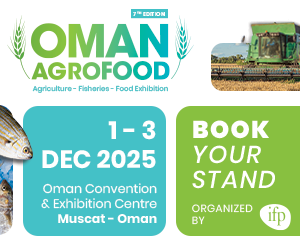As climate change continues to threaten food security and environmental stability around the world, Oman is emerging as a leader in climate-smart agriculture. The nation’s farmers are adapting to the challenges of a warming world through groundbreaking advancements in biotechnology, sustainable practices, and innovative technologies. With drought-resistant crops, livestock farming innovations, and resilient agricultural systems, Oman is shaping a future where climate resilience and sustainability thrive.
One of the most promising areas of innovation is precise gene editing, which allows scientists to make exact modifications to the DNA of crops and livestock. Researchers in Oman are utilizing this technology to develop water-efficient crops, such as sorghum, by altering genes that reduce water loss. This breakthrough could allow the grain to flourish in Oman’s arid environment, conserving precious water resources while ensuring food production. In addition, researchers are enhancing plant structures to withstand high winds and heavy rains, preparing crops to endure the severe storms increasingly associated with climate change.
In the realm of livestock farming, genetic innovations are helping to reduce the environmental impact of agriculture. Cattle, significant producers of methane—a potent greenhouse gas—can have their stomach microbiomes altered to reduce methane emissions. This approach is particularly crucial in Oman, where livestock plays a vital role in both rural life and the economy. By implementing such technologies, Oman can make its agricultural sector more sustainable and environmentally friendly.
Beyond gene editing, genomic selection offers a valuable tool for creating climate-resilient crops and livestock. This technique involves analyzing DNA to identify desirable traits, such as drought resistance or heat tolerance, without directly modifying genes. It enhances traditional breeding practices, promoting climate resilience while reducing reliance on advanced genetic technologies.
Sustainability is not limited to terrestrial agriculture. Oman is also making strides in aquaculture and sustainable fisheries, critical components of the nation’s food security. Biotechnology is being used to develop disease-resistant fish species and improve feed efficiency, boosting yields while reducing environmental impact. Additionally, selective breeding and genetic studies are enhancing the growth rates and resilience of farmed species such as abalone, sea bream, and shrimp. By implementing sustainable practices in fisheries management, Oman is ensuring the long-term viability of its marine resources.
Furthermore, Oman’s agricultural sector is contributing to the fight against climate change through carbon capture technologies. Scientists are developing plants that absorb and store larger amounts of CO₂, effectively turning agriculture into a tool for mitigating climate change. Omani farms, which already feed the nation, could one day play an even greater role in global climate efforts by acting as carbon sinks.
However, the success of these innovations depends on ethical deployment, strong regulatory frameworks, and a commitment to sustainability. Transparency and environmental stewardship are critical to ensuring that these technological advancements benefit society as a whole. Integrating biotechnology into Oman’s food systems is not just about scientific progress; it’s about ensuring a future that can adapt to and thrive in a changing climate.
With visionary leadership and strategic investment in climate-smart agriculture, Oman is well-positioned to lead the way. By embracing a multifaceted approach to sustainable food security and innovative biotechnology, the country can demonstrate how science and technology can transform climate adversity into opportunities for growth and development. With these efforts, Oman can ensure a future where food security is strengthened, emissions are reduced, and natural resources are preserved—showcasing the power of resilience and the potential for a sustainable, thriving future.














































































